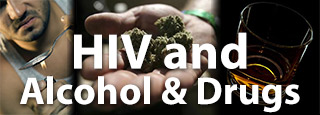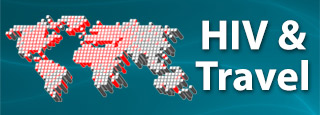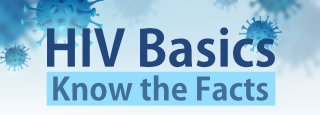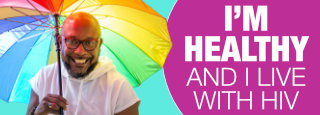Ageing with HIV
Ageing is a process that is natural for everyone - it‘s the process of growing older. With age comes maturity, acceptance, understanding and a greater respect for health and life.
The impact of HIV on our bodies and on the immune system as we get older is greatly affected by ageing. HIV affects each of us differently.
Ageing With HIV
Ageing is a process that is natural for everyone - it‘s the process of growing older. With age comes maturity, acceptance, understanding and a greater respect for health and life. The impact of HIV on our bodies and on the immune system as we get older is greatly affected by ageing. HIV affects each of us differently.
Quicklinks:
Quicklinks:
- Introduction
- Is it HIV or am I just getting older?
- - Immune System Decline
- - Cardiovascular Disease
- - Kidney Disease
- - Bone Health
- - Cancers
- - Diabetes
- - Falls & Frailty
- - Sexual Health
- - Menopause
- Polypharmacy
- Needs Assessments
- Enduring Power of Attorney (EPA)
- Aged Residential Care
- Mental Health
- Isolation and loneliness
- End of Life and Advance Care Planning

Ageing with HIV
With age comes maturity, acceptance, understanding and a greater respect for health and life. With more life experiences we can have better coping skills, resilience, and a more robust sense of self. Recognising these benefits while accepting and adapting to the challenges can help us to achieve a happier and healthier future. The process of ageing includes a reduction in strength, endurance, speed of reaction, agility, metabolism, sexual activity and hearing acuity. The bones become more brittle, the skin drier and less elastic and the teeth may shed.
Ageing is associated with, or responsible for, the ever-increasing susceptibility to disease and death that accompanies advancing age. There has been increasing discussion and great debate about what age this increased susceptibility begins, and whether this is very different for people who live with HIV.
The impact of HIV on our bodies and on the immune system as we get older is greatly affected by ageing. HIV affects each of us differently. Some people progress to symptoms very quickly, while others live for 20-plus years without any signs of immune suppression or symptoms.
Physical age is different from the length of time a person lives with HIV. For example, a 60 year old who is newly diagnosed may have very different experiences and levels of health than a 60 year old who has been diagnosed for 20 years - this person‘s experience and level of health may also be very different depending on when they commenced treatments or not.
How well we age and how the ageing of our bodies impacts our health is unique to each of us. Therefore, HIV infection - coupled with natural ageing - creates added challenges for maintaining good health.
The similarities between ageing and the courses of HIV infection suggest that HIV infection compresses the ageing process, perhaps accelerating co-morbidities (other illnesses) and frailty. There is a lot of discussion regarding inflammation due to living with HIV and the effect of long-term treatment and the associated toxicities.
Age-related conditions, such as liver disease, kidney disease, cancer, menopause, cognitive function (thinking and understanding), bone mineral density, cardiovascular disease, and lipid and glucose metabolism (process by which food is converted into energy) may be aggravated and/or accelerated by HIV infection itself and by HIV treatments - Antiretrovirals (ARVs).
Other things to consider include that Maori and Pacific Islanders are at higher risk of developing diabetes and cardiovascular disease at an earlier age. Also, middle-aged women, who are HIV positive, have risk factors for cardiovascular disease related both to the menopausal transition and to the HIV infection
Planning ahead, consulting with your doctor and staying in control of your health in the best way you can, is a practical way forward.
Is it HIV or am I just getting older?

HIV damages the immune system; nonetheless, a substantial portion of this damage can be reversed through timely initiation of treatment and achieving a consistently undetectable viral load. Certain consequences of HIV-induced harm endure, such as the immune system's diminished ability to retain memory of past germ exposures.
Additionally, the aging process further weakens the immune system. As such, it is essential to maintain your overall health.
Consult your doctor regarding annual flu vaccinations (which are free of charge for people living with HIV in New Zealand), as well as immunisations against shingles and pneumonia. Depending on your medical history, your doctor may also recommend additional vaccines.

The likelihood of developing heart disease tends to increase with age, regardless of HIV status. Individuals older than 55 for women and 45 for men face a higher risk of heart disease compared to younger individuals. If a family member, such as a father, mother, uncle, or sibling, has a history of heart disease, your own risk of developing the condition becomes elevated in comparison to someone without a family history.
While certain risk factors for heart disease, such as age and family background, are beyond your control, many lifestyle factors can be managed. These include:
- Smoking
- Excess weight or obesity
- Insufficient physical activity
- Unhealthy dietary choices
- Alcohol consumption
- Elevated levels of blood cholesterol and lipids (fats)
- Pre-diabetes and diabetes
- High blood pressure (hypertension)
People living with HIV face a significantly heightened risk of developing heart disease, often at an earlier age, compared to those who are HIV negative. The precise relationship between HIV and heart issues is still not fully understood. However, several studies indicate that certain HIV medications, particularly older ones like protease inhibitors, can elevate the risk of heart problems by raising cholesterol and triglyceride levels in the bloodstream. Furthermore, research suggests that lifestyle factors such as smoking, injection drug use, and a lack of regular exercise can contribute to increased risk. New research has also found that taking a cholesterol-lowering statin medication daily could reduce the risk of cardiovascular issues among people living with HIV by 35 percent.
Additionally, some studies propose that HIV itself may directly cause heart problems. Prolonged presence of untreated HIV leads to inflammation in the blood vessels, which becomes a risk factor for heart disease and other conditions. Ongoing clinical trials are exploring medications aimed at reducing inflammation. Despite the potential for HIV drugs to increase the risk of heart problems, it remains evident that the benefits of anti-HIV treatment far outweigh the associated risks.
- eat a healthy diet (plenty of fruits, vegetables, whole grains and protein)
- exercise regularly—especially aerobic or cardio exercise
- quit or cut down on smoking
- limit your alcohol intake
- avoid cocaine, crack cocaine, crystal meth, ecstasy/MDMA, ketamine and GHB
- see your doctor regularly to monitor your heart health
When kidney issues arise as a result of untreated HIV infection, HIV treatment can potentially offer assistance. Nevertheless, certain antiretroviral medications carry the possibility of causing kidney damage. One such medication is Tenofovir disoproxil fumarate (TDF), which can lead to kidney injury in a small number of users. A newer version of Tenofovir called TAF (tenofovir alafenamide) has been proven to be safer for the kidneys. TAF is contained in Biktarvy, Descovy, Genvoya, Odefsey, and Symtuza - sadly however, none of these newer medications have yet to receive Pharmac Funding in New Zealand!
If you are on a TDF-based treatment regimen, it is important for your HIV specialist to monitor your kidney function through routine blood tests. Should you experience kidney-related side effects, your doctor may consider transitioning you to a non TDF-based regimen.

Having HIV increases the risk of certain bone disorders, irrespective of whether you are receiving treatment. Research indicates that nearly 50 percent of individuals with HIV may experience early-stage bone loss or osteopenia. Furthermore, the risk of fractures among people living with HIV is nearly three times higher compared to those who are HIV-negative.
Chronic inflammation caused by HIV has been identified as a contributing factor to bone loss. Age and gender also play significant roles in bone health. Women face a higher risk of osteoporosis, a condition that leads to brittle and easily breakable bones, especially in the hip, spine, and wrist. This is partly due to women typically having around 30 percent less bone mass than men. Women are particularly susceptible to osteoporosis after menopause, when the ovaries no longer produce estrogen, a crucial hormone for maintaining bone strength in women. Conversely, HIV seems to result in greater bone loss in men than in women. Regardless of gender, it is essential to prioritise bone health.
Other risk factors that apply to both men and women include a family history of osteoporosis, smoking, and lack of weight-bearing exercise.
- eat a healthy diet (plenty of fruits, vegetables, whole grains and protein)
- increase your intake of calcium-rich foods (dairy, beans and green leafy vegetables) and take a vitamin D3 supplement
- get lots of weight-bearing exercise, such as walking, running, hiking or weight training
- limit or eliminate your intake of caffeine, cigarettes and alcohol

Conversely, the overall risk of developing various types of cancers rises as one grows older. Both men and women aged 50 and above face an elevated risk of colorectal cancer, affecting the colon and/or rectum, for example. Consequently, age-related cancers now surpass HIV-related cancers in terms of occurrence among individuals undergoing HIV treatment.
An estimated 100 per 100,000 men living with HIV (who have sex with men), have anal cancer versus 20 to 30 per 100,000 men not living with HIV. Cervical cancer, which is caused by the same common HPV virus as anal cancer, occurs in about 10 per 100,000 of women.
Some other non-HIV-related cancers that are seen more often and at an earlier age in people with HIV than in the general population include:
- lung cancer
- skin cancer
- stomach cancer
- liver cancer (more often in those who are co-infected with hepatitis C)
- oral (mouth/throat) cancer
- Hodgkin’s lymphoma
People living with HIV and diagnosed with cancer tend to experience more severe outcomes compared to those without HIV who have the same cancer type. Screening tests are available for certain cancers, and it is crucial to undergo any recommended screening test in order to facilitate early detection, which can enhance the chances of survival. To minimise the risk of developing cancer, it is advisable to consult with your doctor regarding potential lifestyle modifications you may consider implementing.

Certain older HIV medications have been associated with an elevated risk of diabetes. Thankfully, numerous newer drugs are available that do not pose this side effect. However, it's important to note that HIV itself can increase the likelihood of developing diabetes, particularly among individuals who have had HIV for an extended period, are not undergoing treatment, and have a high viral load and low CD4 count.
Risk factors for diabetes include:
- being older than 45
- being overweight
- a sedentary (little or no exercise) lifestyle
- a family history of diabetes
- Indigenous, African, Latin American or Asian ethnic ancestry
- high blood pressure (hypertension)
- high levels of cholesterol and/or triglycerides in the blood
- co-infection with hepatitis C
- smoking tobacco
- Limit the amount of sugar and starchy foods in your diet, such as desserts, soft drinks, white rice or potatoes.
- Choose whole grains and unprocessed foods that contain fibre, such as barley, brown rice and oats as healthy grain choices.
- Eat a balanced diet, including healthy protein sources such as lean meats and at least two servings of fish per week.
- Eat smaller amounts.
- Exercise as often as possible, ideally every day.

Older individuals living with HIV may have a higher susceptibility to certain medical conditions that can elevate their risk of falling compared to their HIV-negative counterparts. Falls can serve as indicators of diverse issues, including ear infections, balance problems, vision impairments, and difficulties with muscle coordination and movement. That is why it is crucial to engage in discussions with your healthcare provider about fall prevention.
As you age, you may experience a decline in overall strength and become more susceptible to frailty. Frailty refers to the loss of physical, cognitive or social ability to recover from illnesses or stressful events. If you are frail, even a minor change, such as being prescribed a new medicine or a minor infection, can cause a dramatic change to your state of health.
Frailty is not defined by old age. While frailty is more common in older adults, just because you are older doesn't mean you will be frail. Older people with frailty are often more resilient to health challenges than people who have frailty at a younger age. Indications of frailty can encompass weakened muscles, making it more challenging to lift and carry objects, slower walking pace, unintentional weight loss, and persistent fatigue.
Research has indicated that common health problems such as cardiovascular disease and diabetes can contribute to frailty. Nevertheless, frailty is not an unavoidable outcome and can be reversed by identifying the underlying causes and implementing appropriate interventions. Physical activity and balance training can be particularly beneficial. If you notice signs of frailty in yourself, it is essential to consult with your doctor for guidance and potential interventions.
- Frailty is a common problem for older people and is considered a long-term condition
- Frailty can be caused by a health problem and can cause more health problems
- If you are an older adult with frailty, you are at higher risk of other health problems in the event of stress or illness
- The key to managing frailty is early recognition and careful planning
- Frailty can't be reversed but there are things you can do to help prevent its progression

Both men and women may experience sexual difficulties and a decreased libido (sex drive), particularly as they grow older. This sensitive matter is often overlooked and left unaddressed. Several potential factors can contribute to these issues, including HIV itself, side effects of medications, hormonal imbalances (such as low testosterone in both men and women), cardiovascular disease (encompassing heart, artery, and vein problems), diabetes, stress, and depression.
It is essential to have open discussions with your doctor regarding any sexual concerns you may have. In many cases, these problems can be effectively managed, allowing you to maintain a satisfying and joyful sexual life.
The average age of menopause is 51 years. For Women Living with HIV on antiretrovirals, the age at which menopause starts varies but is likely very similar to HIV-negative women.
For some symptoms, it can be difficult to tell whether the cause is HIV, HIV treatment, menopause, a combination of these factors or any of the other health conditions that come with growing older. Many of the symptoms experienced by Women Living with HIV can become more severe during menopause.
Common symptoms include: anxious thoughts, depressive mood, irritability, mind exhaustion, confusion, hot flashes, night sweats, chills, less sexual desire, vaginal dryness & discomfort, changes to body shape and size, difficulties with sleeping, joint and muscle stiffness or pain, hair thinning, irregular periods and changes to breasts.
Hormone therapy can help to treat menopausal symptoms such as hot flashes, vaginal concerns and mood. It may not be the best option for all women, so when talking to your health provider they may ask questions about your symptoms and your health history. Older women who have been in menopause for more than 10 years, women with a history of breast cancer, or those with certain blood clotting history may find other non-hormonal treatments more beneficial.

HIV damages the immune system; nonetheless, a substantial portion of this damage can be reversed through timely initiation of treatment and achieving a consistently undetectable viral load. Certain consequences of HIV-induced harm endure, such as the immune system's diminished ability to retain memory of past germ exposures.
Consult your doctor regarding annual flu vaccinations (which are free of charge for people living with HIV in New Zealand), as well as immunisations against shingles and pneumonia. Depending on your medical history, your doctor may also recommend additional vaccines.

The likelihood of developing heart disease tends to increase with age, regardless of HIV status. Individuals older than 55 for women and 45 for men face a higher risk of heart disease compared to younger individuals. If a family member, such as a father, mother, uncle, or sibling, has a history of heart disease, your own risk of developing the condition becomes elevated in comparison to someone without a family history.
While certain risk factors for heart disease, such as age and family background, are beyond your control, many lifestyle factors can be managed. These include:
- Smoking
- Excess weight or obesity
- Insufficient physical activity
- Unhealthy dietary choices
- Alcohol consumption
- Elevated levels of blood cholesterol and lipids (fats)
- Pre-diabetes and diabetes
- High blood pressure (hypertension)
People living with HIV face a significantly heightened risk of developing heart disease, often at an earlier age, compared to those who are HIV negative. The precise relationship between HIV and heart issues is still not fully understood. However, several studies indicate that certain HIV medications, particularly older ones like protease inhibitors, can elevate the risk of heart problems by raising cholesterol and triglyceride levels in the bloodstream. Furthermore, research suggests that lifestyle factors such as smoking, injection drug use, and a lack of regular exercise can contribute to increased risk. New research has also found that taking a cholesterol-lowering statin medication daily could reduce the risk of cardiovascular issues among people living with HIV by 35 percent.
- eat a healthy diet (plenty of fruits, vegetables, whole grains and protein)
- exercise regularly—especially aerobic or cardio exercise
- quit or cut down on smoking
- limit your alcohol intake
- avoid cocaine, crack cocaine, crystal meth, ecstasy/MDMA, ketamine and GHB
- see your doctor regularly to monitor your heart health
When kidney issues arise as a result of untreated HIV infection, HIV treatment can potentially offer assistance. Nevertheless, certain antiretroviral medications carry the possibility of causing kidney damage. One such medication is Tenofovir disoproxil fumarate (TDF), which can lead to kidney injury in a small number of users. A newer version of Tenofovir called TAF (tenofovir alafenamide) has been proven to be safer for the kidneys. TAF is contained in Biktarvy, Descovy, Genvoya, Odefsey, and Symtuza - sadly however, none of these newer medications have yet to receive Pharmac Funding in New Zealand!
Having HIV increases the risk of certain bone disorders, irrespective of whether you are receiving treatment. Research indicates that nearly 50 percent of individuals with HIV may experience early-stage bone loss or osteopenia. Furthermore, the risk of fractures among people living with HIV is nearly three times higher compared to those who are HIV-negative.
Chronic inflammation caused by HIV has been identified as a contributing factor to bone loss. Age and gender also play significant roles in bone health. Women face a higher risk of osteoporosis, a condition that leads to brittle and easily breakable bones, especially in the hip, spine, and wrist. This is partly due to women typically having around 30 percent less bone mass than men. Women are particularly susceptible to osteoporosis after menopause, when the ovaries no longer produce estrogen, a crucial hormone for maintaining bone strength in women. Conversely, HIV seems to result in greater bone loss in men than in women. Regardless of gender, it is essential to prioritise bone health.
- eat a healthy diet (plenty of fruits, vegetables, whole grains and protein)
- increase your intake of calcium-rich foods (dairy, beans and green leafy vegetables) and take a vitamin D3 supplement
- get lots of weight-bearing exercise, such as walking, running, hiking or weight training
- limit or eliminate your intake of caffeine, cigarettes and alcohol

Conversely, the overall risk of developing various types of cancers rises as one grows older. Both men and women aged 50 and above face an elevated risk of colorectal cancer, affecting the colon and/or rectum, for example. Consequently, age-related cancers now surpass HIV-related cancers in terms of occurrence among individuals undergoing HIV treatment.
An estimated 100 per 100,000 men living with HIV (who have sex with men), have anal cancer versus 20 to 30 per 100,000 men not living with HIV. Cervical cancer, which is caused by the same common HPV virus as anal cancer, occurs in about 10 per 100,000 of women.
- lung cancer
- skin cancer
- stomach cancer
- liver cancer (more often in those who are co-infected with hepatitis C)
- oral (mouth/throat) cancer
- Hodgkin’s lymphoma
People living with HIV and diagnosed with cancer tend to experience more severe outcomes compared to those without HIV who have the same cancer type. Screening tests are available for certain cancers, and it is crucial to undergo any recommended screening test in order to facilitate early detection, which can enhance the chances of survival. To minimise the risk of developing cancer, it is advisable to consult with your doctor regarding potential lifestyle modifications you may consider implementing.

Certain older HIV medications have been associated with an elevated risk of diabetes. Thankfully, numerous newer drugs are available that do not pose this side effect. However, it's important to note that HIV itself can increase the likelihood of developing diabetes, particularly among individuals who have had HIV for an extended period, are not undergoing treatment, and have a high viral load and low CD4 count.
Risk factors for diabetes include:
- being older than 45
- being overweight
- a sedentary (little or no exercise) lifestyle
- a family history of diabetes
- Indigenous, African, Latin American or Asian ethnic ancestry
- high blood pressure (hypertension)
- high levels of cholesterol and/or triglycerides in the blood
- co-infection with hepatitis C
- smoking tobacco
- Limit the amount of sugar and starchy foods in your diet, such as desserts, soft drinks, white rice or potatoes.
- Choose whole grains and unprocessed foods that contain fibre, such as barley, brown rice and oats as healthy grain choices.
- Eat a balanced diet, including healthy protein sources such as lean meats and at least two servings of fish per week.
- Eat smaller amounts.
- Exercise as often as possible, ideally every day.

Older individuals living with HIV may have a higher susceptibility to certain medical conditions that can elevate their risk of falling compared to their HIV-negative counterparts. Falls can serve as indicators of diverse issues, including ear infections, balance problems, vision impairments, and difficulties with muscle coordination and movement. That is why it is crucial to engage in discussions with your healthcare provider about fall prevention.
As you age, you may experience a decline in overall strength and become more susceptible to frailty. Frailty refers to the loss of physical, cognitive or social ability to recover from illnesses or stressful events. If you are frail, even a minor change, such as being prescribed a new medicine or a minor infection, can cause a dramatic change to your state of health.
Frailty is not defined by old age. While frailty is more common in older adults, just because you are older doesn't mean you will be frail. Older people with frailty are often more resilient to health challenges than people who have frailty at a younger age. Indications of frailty can encompass weakened muscles, making it more challenging to lift and carry objects, slower walking pace, unintentional weight loss, and persistent fatigue.
- Frailty is a common problem for older people and is considered a long-term condition
- Frailty can be caused by a health problem and can cause more health problems
- If you are an older adult with frailty, you are at higher risk of other health problems in the event of stress or illness
- The key to managing frailty is early recognition and careful planning
- Frailty can't be reversed but there are things you can do to help prevent its progression

Both men and women may experience sexual difficulties and a decreased libido (sex drive), particularly as they grow older. This sensitive matter is often overlooked and left unaddressed. Several potential factors can contribute to these issues, including HIV itself, side effects of medications, hormonal imbalances (such as low testosterone in both men and women), cardiovascular disease (encompassing heart, artery, and vein problems), diabetes, stress, and depression.
The average age of menopause is 51 years. For Women Living with HIV on antiretrovirals, the age at which menopause starts varies but is likely very similar to HIV-negative women.
For some symptoms, it can be difficult to tell whether the cause is HIV, HIV treatment, menopause, a combination of these factors or any of the other health conditions that come with growing older. Many of the symptoms experienced by Women Living with HIV can become more severe during menopause.
Common symptoms include: anxious thoughts, depressive mood, irritability, mind exhaustion, confusion, hot flashes, night sweats, chills, less sexual desire, vaginal dryness & discomfort, changes to body shape and size, difficulties with sleeping, joint and muscle stiffness or pain, hair thinning, irregular periods and changes to breasts.
Polypharmacy
The major concern of polypharmacy to a person is a much higher risk of adverse drug effects – the more medicines you take, the greater the chance of side effects. In older adults, polypharmacy has been associated with serious effects such as:
- increased falls and fractures
- dehydration and kidney problems
- delirium and confusion
- low blood glucose (hypoglycaemia)
- malnutrition.
- Taking lots of medicines means that you have to remember to take all of them properly. This can be tedious especially when you're away from home or travelling.
Needs Assessments
A Needs Assessment Service (NAS) or Needs Assessment and Service Co-ordination (NASC) works with people who have a health or disability concern to help support them to continue living at home.
- requires ongoing help to be independent
Services such as Age Concern, Meals on Wheels and other private organisations may be able to help.
- you or your family contacting your local Needs Assessment Coordination Service Co-ordination (NASC) directly
- your doctor referring you
- If you’re in hospital, the staff looking after you, who are preparing your discharge can contact the NASC
- Health NZ - Needs Assessment and Support Services for Older People
- Healthpoint - Older People's Health Services By Region
- NZ Govt - Needs Assessment
- Age Concern Auckland - How We Can Help
- Red Cross - Meals on Wheels
Enduring Power of Attorney (EPA)
A property EPA allows you to appoint someone to manage your financial affairs.
A personal care and welfare EPA allows you to appoint someone to make decision about your personal health and well-being in the event you are unable to make these decisions for yourself.
If you don’t have a formal agreement as to who may act on your behalf the government will appoint someone and or make decisions on your behalf. In which case you will have little input.
Aged Residential Care
The landscape has significantly evolved since the 1980s, when many policies around dealing with HIV/AIDS were initially formulated within the sector. Often misconceptions surrounding the transmission of HIV still exist and should be challenged. Everyday care activities such as bathing, washing, or dressing someone do not pose any risk of HIV transmission.
If you have already moved into an aged residential care facility, or are considering it in the near future, it's important that the staff at the facility do not treat you any differently because of your HIV status.
- You should be supported to engage in care and treatment including timely provision of your medications
- You should be treated equally, there is no risk of transmission
- You don’t need separate or disposable cutlery/dishes
- You don’t need to have your room disinfected or laundry done separately
- You don’t need to be washed differently or last in the day
- Your HIV status like any other medical condition, should be treated as confidential and not openly discussed by staff
- You have control of your health information - only staff directly responsible for your medical care need to know your HIV status
Mental Health
There are many physical causes of depression, which may include conditions like anemia, low testosterone levels, vitamin B12 deficiency, low thyroid levels (particularly in women), and hormonal changes associated with pre-menstrual syndrome (PMS), pregnancy, childbirth, or menopause. HIV itself can also contribute to depression, while certain HIV treatments can exhibit side effects related to mental health. For instance, efavirenz has been associated with mental health issues, and a very small percentage (1-3%) of individuals taking integrase inhibitors such as raltegravir, elvitegravir, dolutegravir and bictegravir may experience anxiety, sleep disturbances, and depression. Anxiety symptoms can manifest as a rapid heart rate, insomnia, and excessive worry, and it is relatively common among people living with HIV. If any of the aforementioned symptoms are present, seeking medical attention and accessing treatment and support are crucial steps.
Thankfully, the occurrence of HIV-associated dementia, which was more prevalent during the early days of the epidemic, has significantly decreased with the advent of effective HIV treatments in the mid-1990s. However, as individuals with HIV age, there is an increased risk of developing what is now known as HIV Associated Neurocognitive Disorder (HAND). This condition encompasses a range of cognitive, motor, and/or mood issues. Symptoms may include difficulties with memory, concentration, calculations, or completing basic tasks, although most cases of HAND exhibit mild impairment. If you notice any of these symptoms, it is crucial to consult your doctor promptly.
Isolation and loneliness
Prolonged isolation can make it harder to interact socially with other people, and can often mean they internalise the stigma they are trying to escape, Depression itself can magnify the isolation if it is not managed, and isolation can further magnify depression creating a never-ending downward spiral.
Studies have shown that loneliness has a high association with depression. Isolation also impedes the need to exercise as well as eat healthy food. Isolation often causes a sedentary lifestyle that contributes to the risk for developing and exacerbating other illnesses associated with ageing. Older adults experiencing depression may also lack the basic social supports that spouses, partners, and children often provide.
Older adults typically beginning experiencing loneliness in their 70s. This usually occurs when they lose spouses, partners, and friends, or become socially isolated due to deteriorating health and frailty. Higher levels of loneliness are associated with decreased overall health for people living with chronic illnesses such as HIV, heart disease and cancers.
How do you create opportunities for socialisation and reduce loneliness? One size does not fit all, but a good place to start is to attend events, participate in a group, or join a local club or program. You can often find information about local clubs and groups at your nearest library or community centre.
Body Positive runs monthly +Social meet-ups around New Zealand allowing people living with HIV to meet and socialise with others in a safe and friendly space. We also host an annual HIV+ Men's Retreat in Auckland which brings together positive men from all over New Zealand, while or sister organisation, Positive Women hosts a similar annual HIV+ Women's Retreat.
Friendships and volunteerism are ways we can give and be connected to others. Group activities such as sporting events or even games are other ways. Persistent loneliness is often accompanied by withdrawal from a community. As that process continues, you might often only think of yourself. Seeing life through the lens of loneliness is a cycle that must be broken.

End of Life and Advance Care Planning
Planning your future health care helps you understand what the future might hold. It also helps your family/whānau and your healthcare team know what health care you would or would not want, which is especially helpful when you can no longer speak for yourself, eg, in advanced stage of dementia or when a sudden unexpected illness happens.
Join Body Positive
Newsletter
Subscribe to our newsletter below by submitting your e-mail address.

